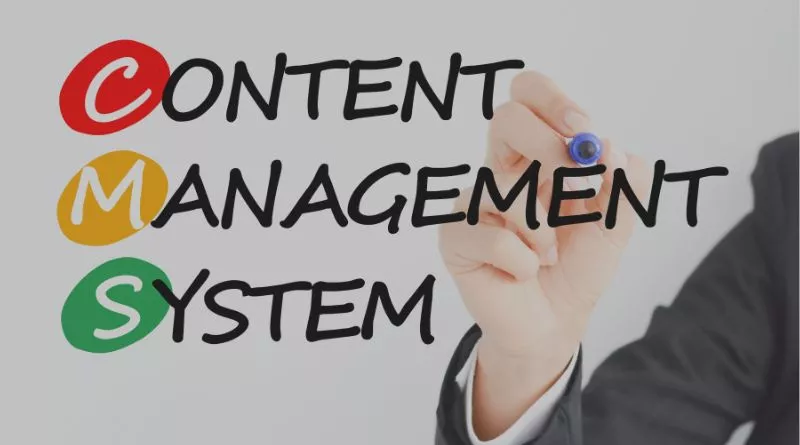In the digital realm, managing content effectively is a pivotal task, and this is where a Content Management System (CMS) comes into play. But what exactly is a CMS? A CMS is an application designed to facilitate the creation, editing, and publishing of content. It acts as a dynamic hub where multiple contributors can seamlessly collaborate. The content in a CMS is typically stored in a database and presented through a presentation layer, often in the form of a website, adhering to predefined templates.
Let’s delve deeper into the realm of CMS and explore its functionalities:
The Functions of a CMS
Here are the functions of the content management system:
- Content Creation: A CMS empowers users to create and format content with ease. It simplifies the process of crafting articles, blog posts, or web pages, allowing content creators to focus on the substance rather than the technicalities.
- Content Storage: A CMS serves as a centralized repository where content is systematically organized and stored. This ensures uniformity and consistency in content management.
- Workflows: Effective content management requires a structured approach. CMS facilitates this by assigning permissions and roles to various contributors, such as authors, editors, and administrators. This streamlines content management processes and ensures the right people are handling the right tasks.
- Publishing: A CMS offers scheduling and publishing capabilities, allowing users to determine when and where their content should go live. This feature ensures that content is released at optimal times for maximum impact.
- Optimization: A modern CMS doesn’t stop at content management; it goes a step further by helping users enhance their digital experience. The CMS supports data-driven decision-making, enabling users to optimize their content based on user behavior and preferences.
Benefits of a Content Management System
The adoption of a CMS bestows a plethora of advantages, making it an indispensable tool for web content management. Here are some notable benefits:
- Collaboration: One of the primary advantages of a CMS is its collaborative nature. Multiple editors can effortlessly contribute, schedule, or manage content for publication. Since the user interface is typically browser-based, a CMS can be accessed from anywhere, facilitating collaboration among a diverse range of users.
- Accessibility for Non-Technical Users: A CMS makes it remarkably easy for non-technical individuals who lack programming knowledge to create and manage content. The intuitive, drag-and-drop editors found in most CMS platforms enable users to input text and upload images without any need for HTML or CSS expertise.
- Reduced Dependency on Developers: When companies employ a CMS to publish web pages, they minimize their reliance on front-end developers to make changes to their websites. This expedites the process of publishing new web pages and enhances the digital experience for users.
- Multi-Channel Publishing: A CMS extends its utility beyond websites. It allows users to publish content across various channels, including social media, mobile apps, and e-commerce platforms. This capability streamlines content distribution, reducing the need for extensive development efforts.
Difference Between a Website and a CMS
A clear difference exists between a website and a CMS. To put it simply, a website is a collection of web pages that users can browse, while a CMS is the software that powers the website. A website is defined as “a collection of web pages and related content identified by a common domain name and published on at least one web server.” In contrast, a CMS, or Content Management System, is a software application that allows the storage, management, and publication of web pages.
Most websites utilize a CMS to facilitate content management. However, it’s possible to create a website without a CMS, writing code directly in programming languages such as HTML and CSS. Nevertheless, using a CMS to manage content is often preferred due to its user-friendly features, which enable content management without the need for extensive coding.
CMS Examples
In the expansive landscape of CMS platforms, there are numerous options, each offering unique functionalities. Some of the leading and most popular CMS providers include:
- WordPress: Renowned for its user-friendly interface and a vast library of plugins and themes, WordPress is a top choice for bloggers and businesses alike. It’s highly adaptable and can support a wide range of website types, from blogs to e-commerce sites.
- Drupal: Drupal is celebrated for its flexibility and scalability, making it an ideal choice for larger, complex websites. It’s often favored by organizations and enterprises for its robust features and security.
- Contentful: Contentful stands out as a headless CMS, offering flexibility for developers to create custom front-end experiences while managing content seamlessly. This approach is particularly valuable for organizations seeking to deliver content across various platforms.
- Squarespace: Squarespace is known for its visually appealing templates and ease of use. It’s a popular choice for creatives and small businesses looking to establish an online presence quickly.
- Wix: Wix is a user-friendly CMS that provides a wide array of templates and design customization options. It’s favored by beginners and small businesses for its simplicity and drag-and-drop functionality.
- Optimizely CMS: Although Optimizely CMS is a powerful content management system, it often caters to the optimization of content and user experiences. It’s particularly beneficial for organizations looking to fine-tune their content for better performance.
For e-commerce needs, platforms like Adobe Magento and Shopify are popular choices. While they manage content similar to a CMS, they are primarily recognized as e-commerce platforms with added content management functionality.
What to look for in a CMS?
Your selection of a CMS should align with your specific requirements, whether it’s managing a blog, running an e-commerce site, or creating a custom front-end experience. Additionally, consider factors like ease of use, available resources, and the support community when making your decision.
- Defining Your Goals: Begin by listing your objectives and specific requirements. Your chosen CMS should align with your business needs rather than simply opting for the most popular platform.
- Budget Constraints: Determine your budget, as CMS costs encompass various components like hosting, domain registration, content management software, development work, and maintenance fees.
- Content Types and Processes: Consider the types of digital content you’ll manage. Some CMS platforms are tailored for specific content types, such as blogs or e-commerce.
- Integration Needs: If you use existing software like CRMs or web analytics tools, choose a CMS that offers integrations with these tools. A robust API and documentation are valuable for developers.
- Ease of Content Creation and Editing: Evaluate the CMS’s ease of content creation and editing, particularly if your team includes members with varying levels of technical expertise. Consider features like role and rights management for controlled access.
- User Community and Support: Assess the support and community behind the CMS. Regular updates, bug fixes, and a sizable developer community are indicators of a robust CMS.
- SEO: If SEO is a priority, select a CMS that supports on-page optimization, improving your website’s visibility on search engines.
- Technology Stack: Ensure that the CMS aligns with your development team’s expertise. Compatibility with programming languages like PHP, .NET, or server-side JavaScript is vital.
Conclusion
In a digital landscape where content reigns supreme, a Content Management System (CMS) emerges as the cornerstone of efficient content management. The benefits are unequivocal, from collaborative prowess to enabling non-technical users to take the reins of content creation. The reduced reliance on developers for website alterations and the seamless multi-channel publishing capability further underscore the significance of a CMS.
The selection of the ideal CMS hinges on a nuanced evaluation of your goals, budget, content types, integration needs, ease of content creation and editing, support community, SEO capabilities, and technology stack. By making an informed choice, your content management journey is poised for success, delivering a seamless and optimized digital experience for users.
If you like reading the article then you may also like:



